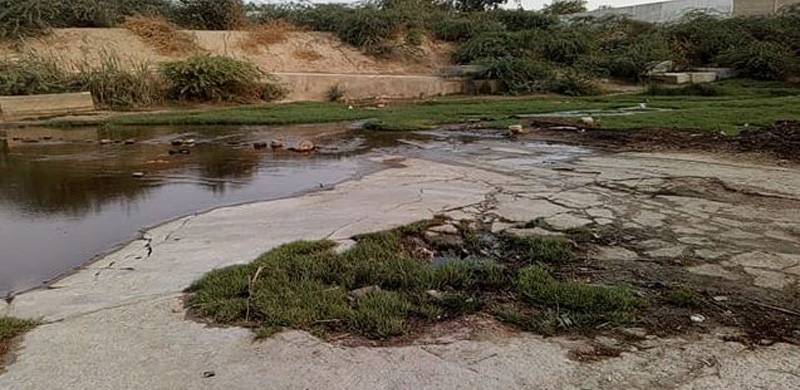
A multinational company's factory situated in Karachi’s agricultural area has ruined the environment irreparably by polluting the land and river with its toxic effluent.
Located in Dumba Goth, in the outskirts of Karachi, the Pepsi plant which produces Aquafina bottled water has made lives of the residents miserable who argue that the factory was illegally built in an area where agriculture once used to flourish.
The test results of the factory’s effluent and of water reservoir nearby, which the locals used for their livestock, revealed that the company is violating government standards set for disposing of wastage water.
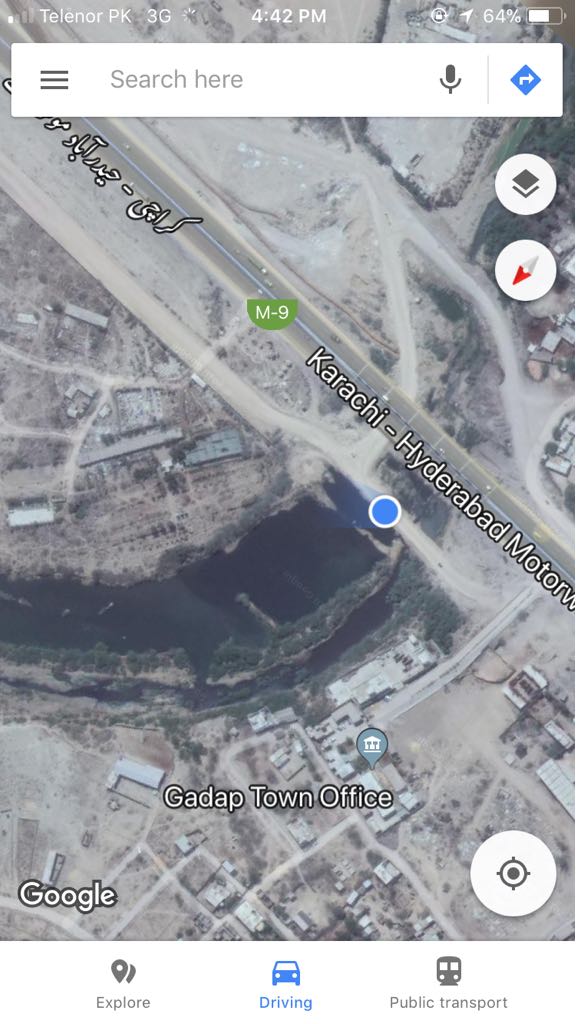
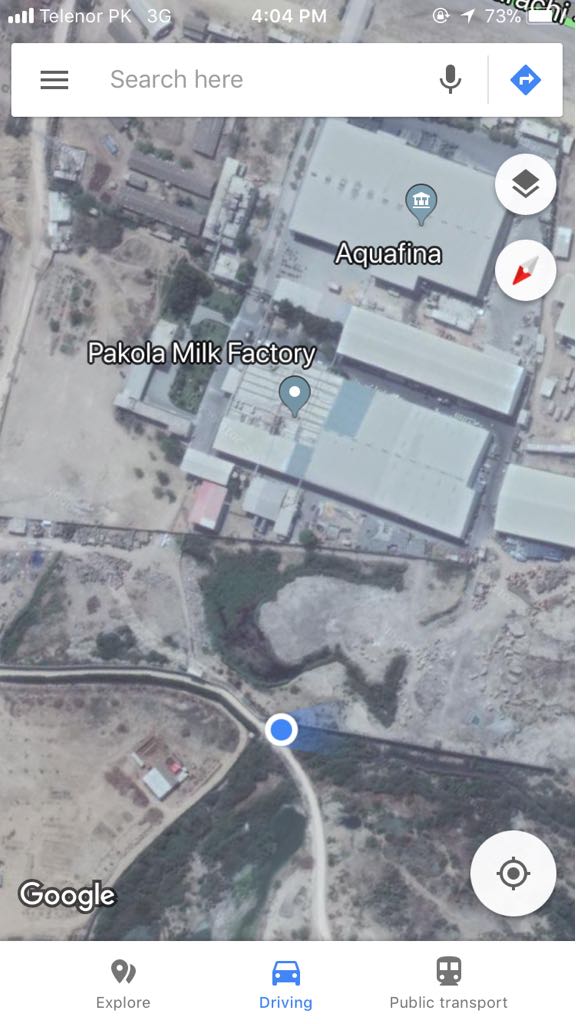
A number of goth’s residents have been complaining that their children were getting sick because of environmental changes and their livestock were dying after drinking the river water the animals had been living on for decades. Water of Thaddo River, which runs along a number of areas was also used for agricultural purpose. However, the locals say their lands have lost fertility because of the ‘poisonous water’ that the plant has been spewing over and their livestock are dying.
A 15-minute walk from the main gate of the said plant – which not so surprisingly has no signboard on the front side – will take you to the back of the factory where long bushes cover the drainage system. A local with his goats gives us strange looks when he observes our curiosity. “Don’t go further. Can’t you hear the gushing water? Behind these shrubs, they are throwing their poison into the water,” the old man says, while his goats also stay away from the water and bushes touching the plant’s boundaries.
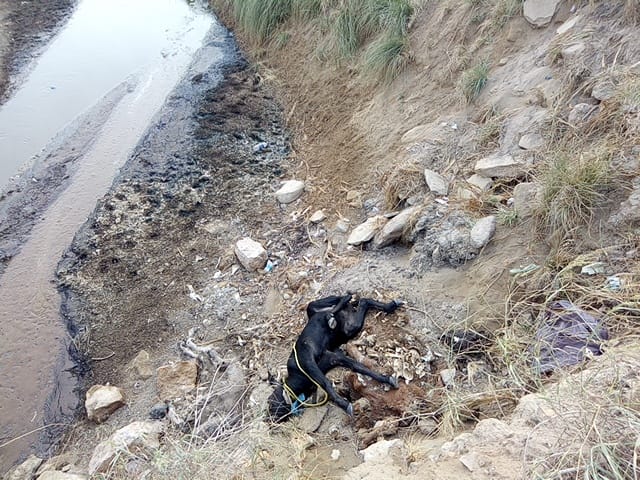
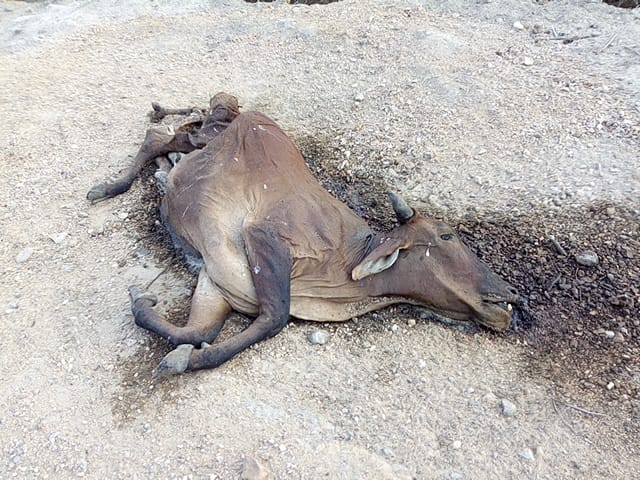
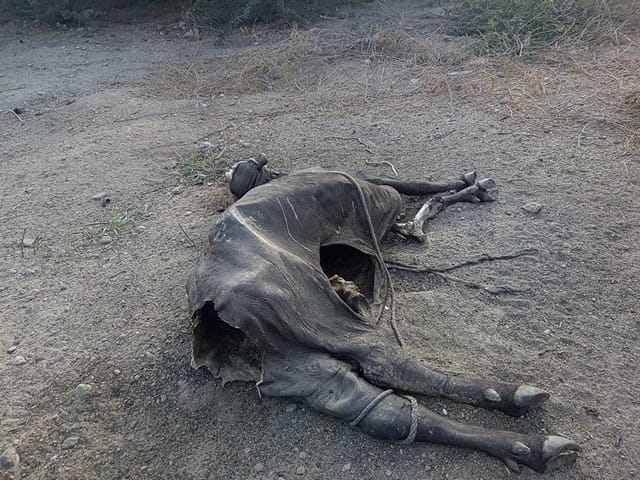
Another aged man who used to grow vegetables on his land said he couldn’t do that anymore because the land was infertile. When he complained to the company, the plant officials started giving him Rs4000 a month as compensation. Although that’s laughingly little amount against the destruction of his natural resource, there is not much he can do about it. Owing to some influential names involved in the matter, the old man asked not to be named.
“That’s the story of every other man who used to own lands here and would grow crops. But now our agricultural lands have been destroyed,” says Yameen* Pallari. “We had raised the issue that how an industry can be built here despite our neighborhood being a residential and agrarian area, but no one pays heed to our pleas,” he adds.
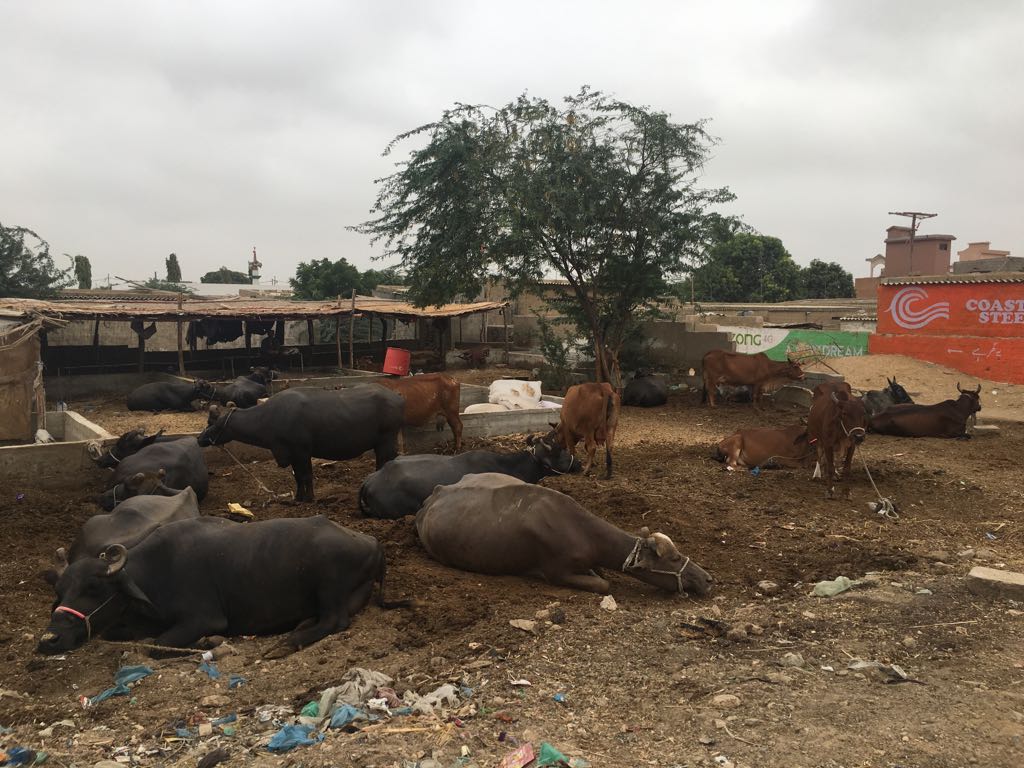
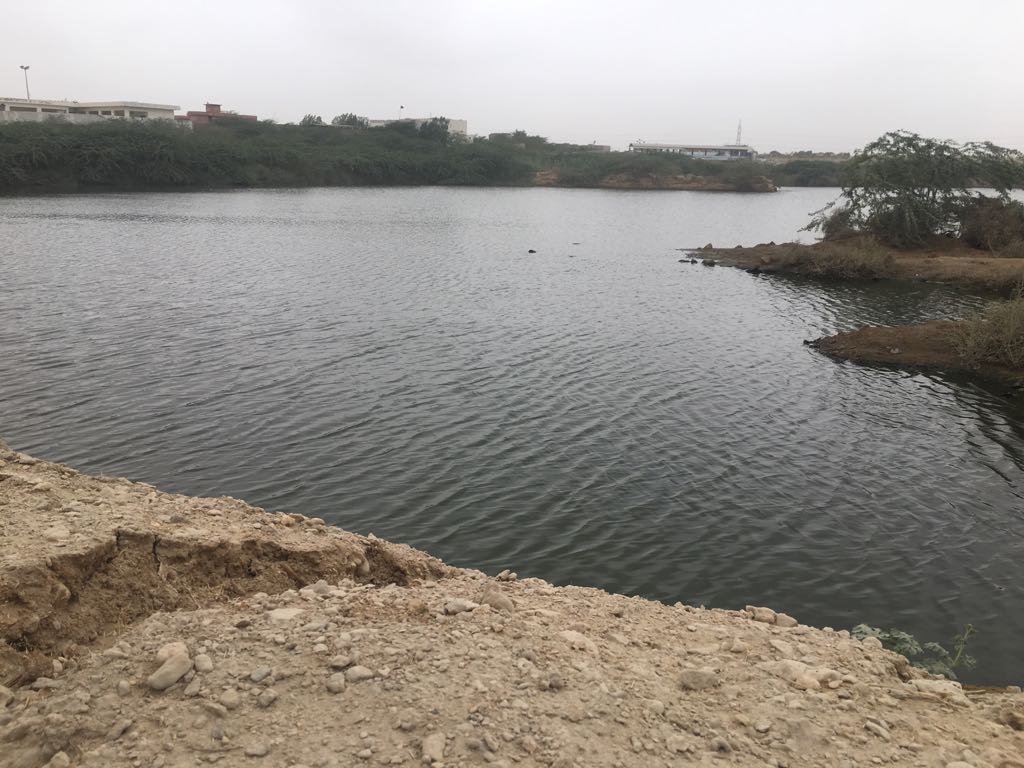
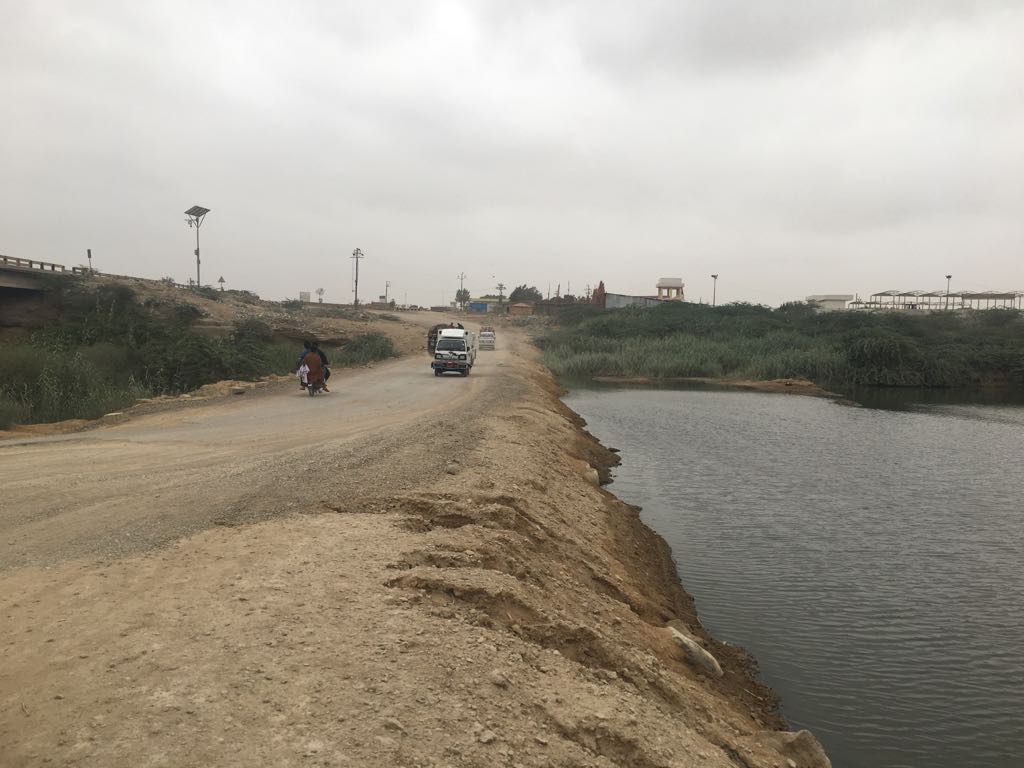
Test shows excess levels of toxic substance
The tests of the water around the area were conducted independently by a chemical engineer who works at a multinational corporation based in Karachi and chose to remain anonymous. The water can neither be used for livestock nor for growing crops, he said.
Here are the results:
pH =7.84
TDS = 5501 ppm
Sulphates= 940 ppm
Chlorides = 2840 ppm
With help from the plant workers, plant's industrial effluent was tested.
The results are as follows:
Appearance: milky
pH = 11.22
TDS= 8920 ppm
Chlorides= 4082 ppm
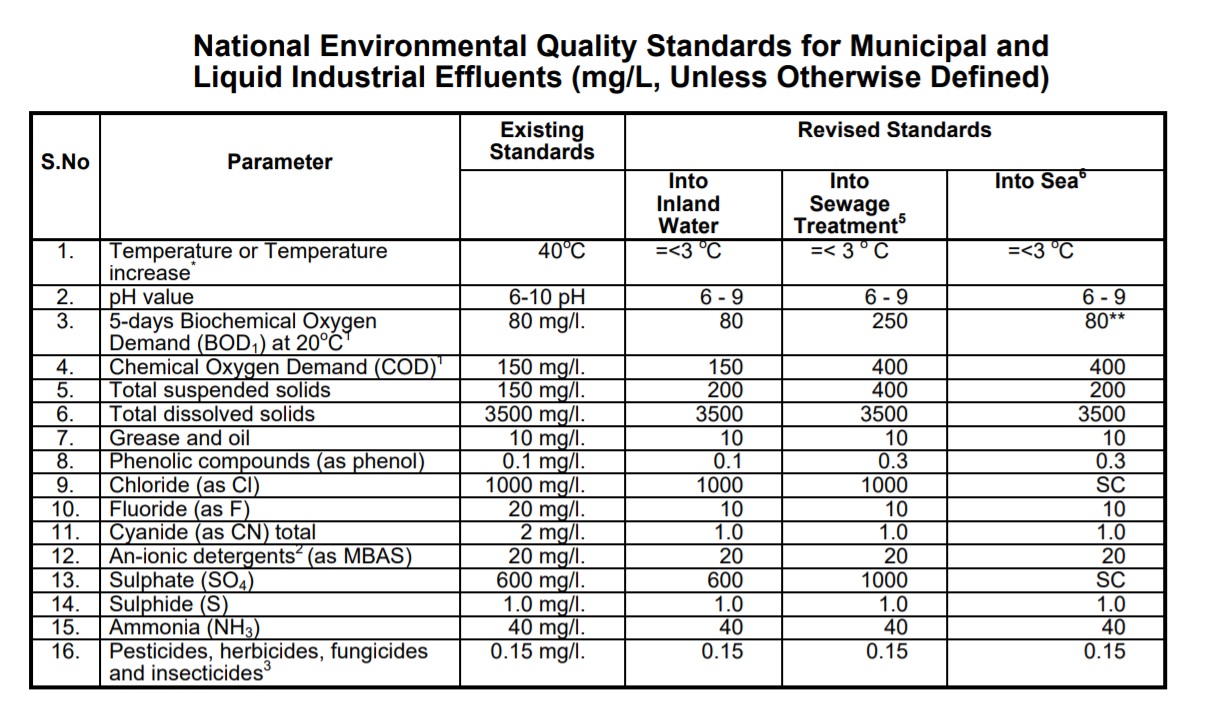
These results show that the beverage company is violating the standard set for throwing effluents by the Sindh Environment Protection Agency (SEPA) and National Environmental Quality Standards (NEQS).
The TDS – or Total Dissolved Solids – stands at 8,920 ppm whereas only 3,500 ppm is allowed to be disposed. The same goes for the Chloride levels, which were found at 4,082 ppm when only 1,000 ppm is allowed. The pH value, a scale used to specify the acidity or basicity in water, also exceeded the standard amount.
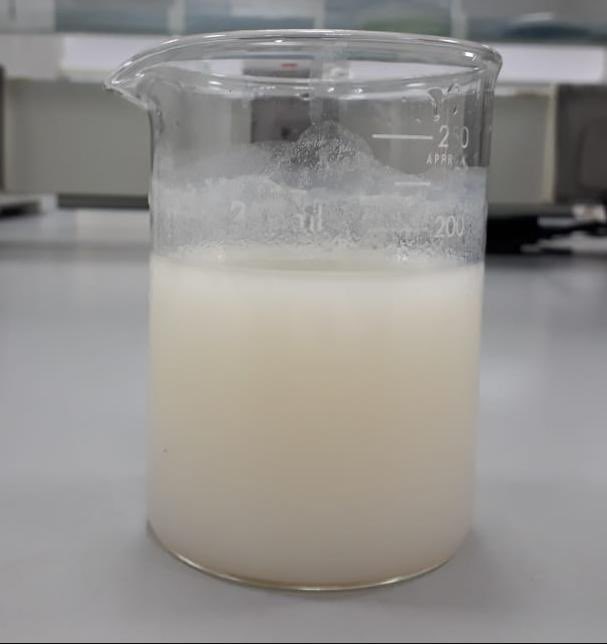
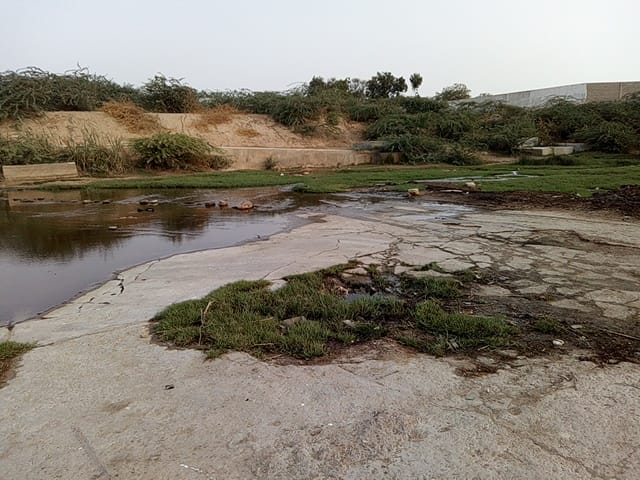
A SEPA official stated that they had penalised the beverage company for not meeting the requirements.
SEPA Deputy Director Malir District Afzal Khan said, “The agency had fined the factory which was a big step towards protecting the environment. But I am not sure if they have paid the penalty thus far,” he said.
PepsiCo Public Relation Officer Zeeshan Sohail declined to give his comment despite repeated requests.
Meanwhile, Deputy Commissioner District Malir Shahzad Fazal Abbasi said the matter did not come under his jurisdiction since according to the records the plant’s 28-acre land was allotted as an industrial site in 2012.
When asked how an industry which has the potential to destroy environment can be built in an area surrounded by goths, his office said they were not aware of the residential areas. People have been living there for decades.
“I don’t think that a plant like Aquafina’s can generate waste or effluent,” he said.
The factory management in the past has also violated labour laws and a case is still pending with National Industrial Relations Commission (NIRC). The factory has employed workers on contract, clearly violating the rules, and fired over 40 employees without any due process.
Located in Dumba Goth, in the outskirts of Karachi, the Pepsi plant which produces Aquafina bottled water has made lives of the residents miserable who argue that the factory was illegally built in an area where agriculture once used to flourish.
The test results of the factory’s effluent and of water reservoir nearby, which the locals used for their livestock, revealed that the company is violating government standards set for disposing of wastage water.

The lake as shown on Google maps located near the plant

The blue pointer on the Google maps shows where the plant disposes its effluent
A number of goth’s residents have been complaining that their children were getting sick because of environmental changes and their livestock were dying after drinking the river water the animals had been living on for decades. Water of Thaddo River, which runs along a number of areas was also used for agricultural purpose. However, the locals say their lands have lost fertility because of the ‘poisonous water’ that the plant has been spewing over and their livestock are dying.
A 15-minute walk from the main gate of the said plant – which not so surprisingly has no signboard on the front side – will take you to the back of the factory where long bushes cover the drainage system. A local with his goats gives us strange looks when he observes our curiosity. “Don’t go further. Can’t you hear the gushing water? Behind these shrubs, they are throwing their poison into the water,” the old man says, while his goats also stay away from the water and bushes touching the plant’s boundaries.



Another aged man who used to grow vegetables on his land said he couldn’t do that anymore because the land was infertile. When he complained to the company, the plant officials started giving him Rs4000 a month as compensation. Although that’s laughingly little amount against the destruction of his natural resource, there is not much he can do about it. Owing to some influential names involved in the matter, the old man asked not to be named.
“That’s the story of every other man who used to own lands here and would grow crops. But now our agricultural lands have been destroyed,” says Yameen* Pallari. “We had raised the issue that how an industry can be built here despite our neighborhood being a residential and agrarian area, but no one pays heed to our pleas,” he adds.

Plant workers disclosed that the factory is in fact polluting the nearby water.

The lake that was once used for livestock and agricultural purposes

Test shows excess levels of toxic substance
The tests of the water around the area were conducted independently by a chemical engineer who works at a multinational corporation based in Karachi and chose to remain anonymous. The water can neither be used for livestock nor for growing crops, he said.
Here are the results:
pH =7.84
TDS = 5501 ppm
Sulphates= 940 ppm
Chlorides = 2840 ppm
With help from the plant workers, plant's industrial effluent was tested.
The results are as follows:
Appearance: milky
pH = 11.22
TDS= 8920 ppm
Chlorides= 4082 ppm

Standards set for industrial effluent by NEQS.
These results show that the beverage company is violating the standard set for throwing effluents by the Sindh Environment Protection Agency (SEPA) and National Environmental Quality Standards (NEQS).
The TDS – or Total Dissolved Solids – stands at 8,920 ppm whereas only 3,500 ppm is allowed to be disposed. The same goes for the Chloride levels, which were found at 4,082 ppm when only 1,000 ppm is allowed. The pH value, a scale used to specify the acidity or basicity in water, also exceeded the standard amount.


The land left infertile in Dumba Goth
A SEPA official stated that they had penalised the beverage company for not meeting the requirements.
SEPA Deputy Director Malir District Afzal Khan said, “The agency had fined the factory which was a big step towards protecting the environment. But I am not sure if they have paid the penalty thus far,” he said.
PepsiCo Public Relation Officer Zeeshan Sohail declined to give his comment despite repeated requests.
Meanwhile, Deputy Commissioner District Malir Shahzad Fazal Abbasi said the matter did not come under his jurisdiction since according to the records the plant’s 28-acre land was allotted as an industrial site in 2012.
When asked how an industry which has the potential to destroy environment can be built in an area surrounded by goths, his office said they were not aware of the residential areas. People have been living there for decades.
“I don’t think that a plant like Aquafina’s can generate waste or effluent,” he said.
The factory management in the past has also violated labour laws and a case is still pending with National Industrial Relations Commission (NIRC). The factory has employed workers on contract, clearly violating the rules, and fired over 40 employees without any due process.
